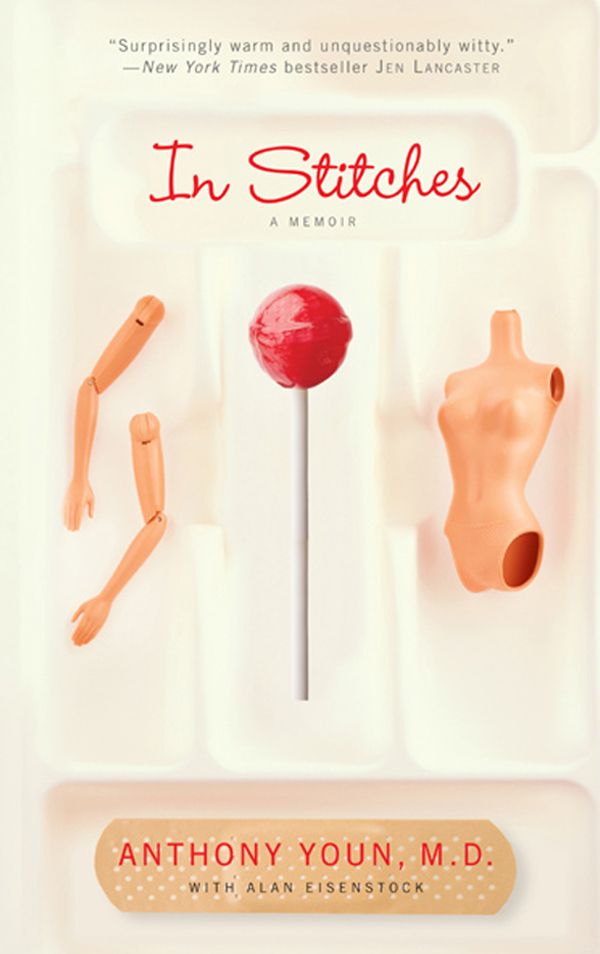
In Stitches
کتاب های مرتبط
- اطلاعات
- نقد و بررسی
- دیدگاه کاربران
نقد و بررسی

May 16, 2011
In his first book Youn looks back from the cushy perspective of the plastic surgeon at his transformation, letting readers in on a secret: it wasn't easy. Young Youn was an outcast, an "Asian American...in near wall-to-wall whiteness"; his adolescence was an accumulation of sour moments eventually leading to medicine. But the journey, as Youn describes it, is hilarious. A dedicated student, he spends much of his time with his roommates in the "nerd room." He practices sutures on pig's feet and chicken breasts. His roommates tutor him in matters of love and lust. Only two hours into his very first rotation, Youn loses his first patient; "Patients die. Get used to it. This is a hospital," the attending barks at him. As Youn moves through specialty rotations, agonizing over what to select, his father urges him to make the right choice: pediatrics, for instance, means a life of "tiny people, tiny dollah!" Ironically, it's a night during Youn's Peds rotation that changed the course of his life. Youn's description of his journey from high-school outcast to rock star plastic surgeon is full of fascinating stories and laced with self-deprecating humor in the midst of dark desperation, providing a refreshing insight into medicine.

March 1, 2011
In this coming-of-age debut, plastic surgeon Youn chronicles his sometimes-harrowing journey to becoming a doctor.
The author's father surmounted tremendous obstacles to emigrate from Korea to become an obstetrician with a thriving U.S. practice, and he had high academic expectations for his son. When he was seven years old, the author writes, his father told him, "Tony, you become a transplant surgeon." When Youn replied that he wasn't sure he wanted to be a doctor, his father's anger was explosive and he never challenged him again. The author succeeded in gaining social acceptance among his peers in Greenville, Mich., the small, lily-white, conservative community where the family lived. He writes that he was considered to be one of the cool kids, although his success with girls was limited. But when he attended Kalamazoo College, he was excluded socially and uniformly rejected by every young woman he approached. Academically, he was on track for medical school, a transition he looked forward to with high hopes. The author writes amusingly about his expectations: "Chicks love doctors. I'm going to med school to get laid." While that didn't prove to be the case, Youn offers amusing stories about his ineptitude with his dates; eventually, he made close friendships and ultimately met his future wife. In medical school, he had the first glimmering of a vocation for medicine, but his hospital training experiences—described in humorous detail—were hellacious. Only when he was called to assist in an operation on a child whose face had been mauled by a raccoon, and was captivated by the thrill of reconstructive surgery, did he find his true vocation as a plastic surgeon.
While the author admits to taking "some comedic license," the story of his Korean family and his struggle to find his path have greater appeal.
(COPYRIGHT (2011) KIRKUS REVIEWS/NIELSEN BUSINESS MEDIA, INC. ALL RIGHTS RESERVED.)

























دیدگاه کاربران